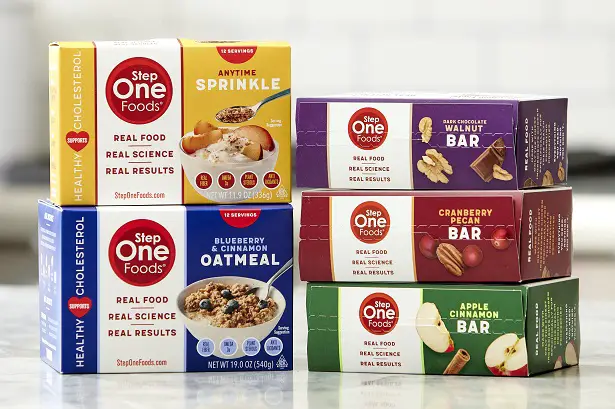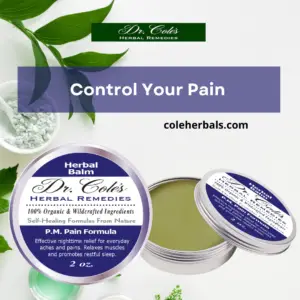Step One Foods is a line of snack foods, nutrition bars, breakfast foods and more designed by cardiologist and founder Dr. Elizabeth Klodas to improve heart health.
These foods are gluten and dairy free, non-GMO, and have been specifically designed to lower LDL (low-density lipoprotein) cholesterol.
Recently, Dr. Klodas sat down to answer questions from AltHealthWorks.com on the mission behind her products, the best practical steps people can take to improve heart health, and much more.
AHW: What are some of the best heart-healthy nutrients in your bars and other food items?
EK: Step One’s foods were specifically formulated to deliver clinically impactful levels of fiber, omega 3 fatty acids, antioxidants and plant sterols in just two servings per day.
All of these nutrients come from whole real food ingredients (such as oats, walnuts, berries and chia), the only fortification being plant sterols as meaningful amounts of these are difficult to obtain in just two servings of plant-based foods.
All the foods are interchangeable in terms of nutrients of interest so individuals can choose any two foods per day and receive the same nutritional benefits.
This nutrient combination, as derived from the specific ingredients in Step One Foods, has been demonstrated – in a randomized controlled clinical trial – to yield highly significant, rapid cholesterol reductions. Some trial participants experienced medication-level cholesterol responses in just 30 days. With food. Not with drugs. With food.
AHW: What are some of the best, most practical steps that people can take to improve their
heart health today from a dietary perspective?
EK: If you’re doing little for heart health today from a dietary perspective, the most efficient way to improve nutritional quality and help lower cholesterol would be through using Step One Foods!
After all, that’s why those products were developed – and they’re super simple to incorporate intoanyone’s routine. For more do-it-yourselfers, increasing intake of whole plant-based foods is the key.
There is something special about plants. Per calorie, they can’t be beat for nutrient content, especially when it comes to vitamins and minerals and micronutrients and antioxidants and healthy fats.
It’s the fuel our bodies need.
The more plant based your diet the better. But remember, it’s not just plants in any form. A potato chip is a plant-based food. It’s about plants in their most whole and unadulterated forms.
AHW: What do you say to the people who are pro certain types of saturated fat such as butter
and grass fed animal protein?
Do you think that this approach is correct for long-term health and longevity, or would you caution against eating those types of foods too often?
Just asking because it seems as if there are two camps of people: one who believes the American Heart Association is 100 percent correct and the other who believe that saturated fat has been unfairly demonized.
I was wondering if you have ever taken note of this perspective and if you have any thoughts on it.
EK: When it comes to food or food components, I think both quality and quantity matters.
Saturated fats can raise LDL (bad) cholesterol and are pro-inflammatory. So reducing the amounts we eat
makes sense. But you also have to pay attention to the quality of the nutrient source.
The fat present in grass-fed free-range cows raised without hormones and antibiotics will be less damaging
than fat from cows raised under industrial farming practices.
But that doesn’t mean you get to eat a 16 oz grass fed steak and feel like that has no consequences!
Same for unsaturated fats – just because they’re liquid at room temperature and come from plant-based sources (and carry the halo of improving cholesterol profiles and being anti-inflammatory) doesn’t make them automatically good for us.
Some oils are highly processed and refined (like corn oil and vegetable oil) and might contain processing contaminants.
You are best off consuming unsaturated fats as close to their original form as possible – so cold pressed extra virgin single source olive oil (editor’s note: click here to get a free bottle from one of our sponsors; just pay shipping), avocados, raw nuts, and wild caught fish.
In the end, the best dietary advice I’ve ever run across comes from Michael Pollan – ‘Eat food. Not
too much. Mostly plants.’
By “eat food” he means real, whole food that’s minimally processed and as close to its original form as possible. Food that our great grandmothers would recognize as food.
“Not too much” – means don’t stuff yourself and watch your portions – especially when it comes to
less health promoting foods.
“Mostly plants” – pretty self explanatory.
I eat butter. Just not too much.
AHW: Can you talk about the best lifestyle and exercise-related ways to live as healthy as possible from a heart-centered perspective?
EK: There are 4 main lifestyle factors that contribute to not only heart health but also healthy longevity.
In addition to diet, as outlined above, the 3 others are:
1. Daily moderate exercise. You should move your body every day. You don’t have to be a
marathon runner or triathlete. But you still have to get out there and do SOMETHING.
It could be gardening, or yoga or a physically demanding job. Ideally, you should move your
body somewhat vigorously for at least an hour every single day.
2. Social interconnectedness. It’s important to be part of a group and be an active member of
that group. It could be your neighborhood, your faith community, your extended family, your group of friends.
We are social animals. We thrive when we experience meaningful human connections.
3. An inner sense of purpose and joy. Finding and nurturing a pursuit that gives you personal satisfaction and contentment reduces stress which has wide ranging benefits.
That pursuit could be reading, it could be doing crossword puzzles, it could be your work, it could be meditation or a hobby or learning something new.
It’s whatever gives you a reason to get up in the morning.
My Experience With Step One Foods
For the purposes of this review I was given the chance to try products from Step One Foods.
As someone who likes to hike and play sports I really enjoyed the nutrition bars, of which I tried the chocolate and cranberry.
The chocolate has a nice crunchy texture to it and helped me to stay energized while hiking and playing basketball.
The cranberry bars also were light and filling but not too filling. I consumed them before a three hour kayaking trip to Turnip Rock in Port Austin, Michigan.
The Anytime Sprinkle product is another one that I enjoyed because it is packed full of healthy fats and nutrition and I liked how I could sprinkle it on my cereal or in a bowl that I made with black currants similar to an acai bowl.
I also enjoyed the blueberry oatmeal — it tasted amazing, and had some unique ingredients like Saskatoon berries I hadn’t tried before.
Overall, these foods are well worth checking out if you’re looking for something versatile, delicious and healthy.
I would have liked to have had an organic version, especially for the oatmeal since that is a food that tends to be high in glyphosate, but I love that these foods are non-GMO and contain a considerable amount of health-boosting ingredients.
For someone who tends to eat foods like meat and eggs consistently, these foods were quite helpful in adding much-needed fiber and other healthy plant-based nutrients to my diet.
More information can be found by clicking on this link to visit the Step One Foods website.
Here, you will see nutrition information, research, learn more about the mission behind the products and much more.
Click here to purchase Step One Foods products or to learn more.
Special thanks to Dr. Klodas for this interview and to Step One Foods for providing me with samples to try and review.
Thanks for installing the Bottom of every post plugin by Corey Salzano. Contact me if you need custom WordPress plugins or website design.







